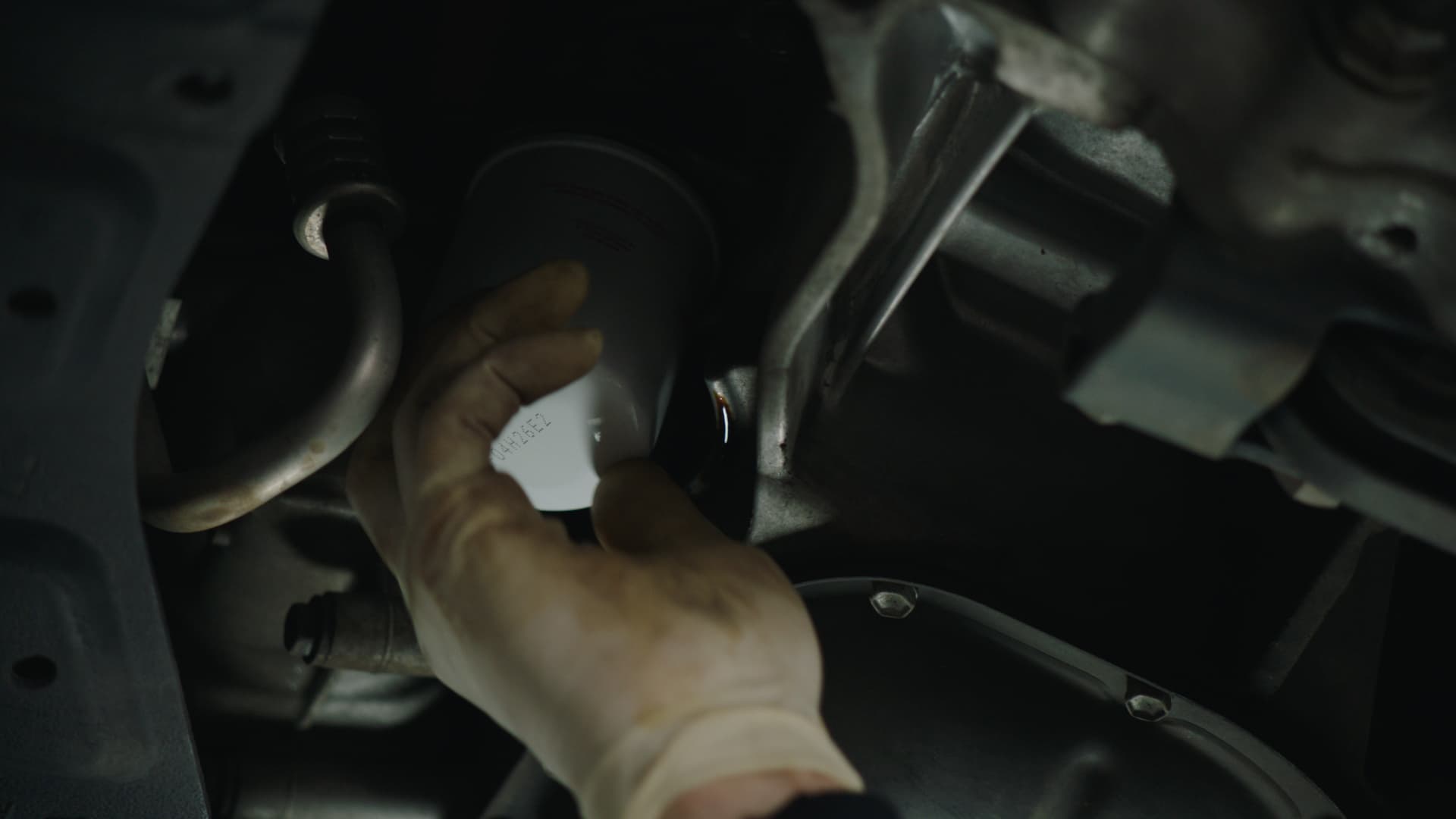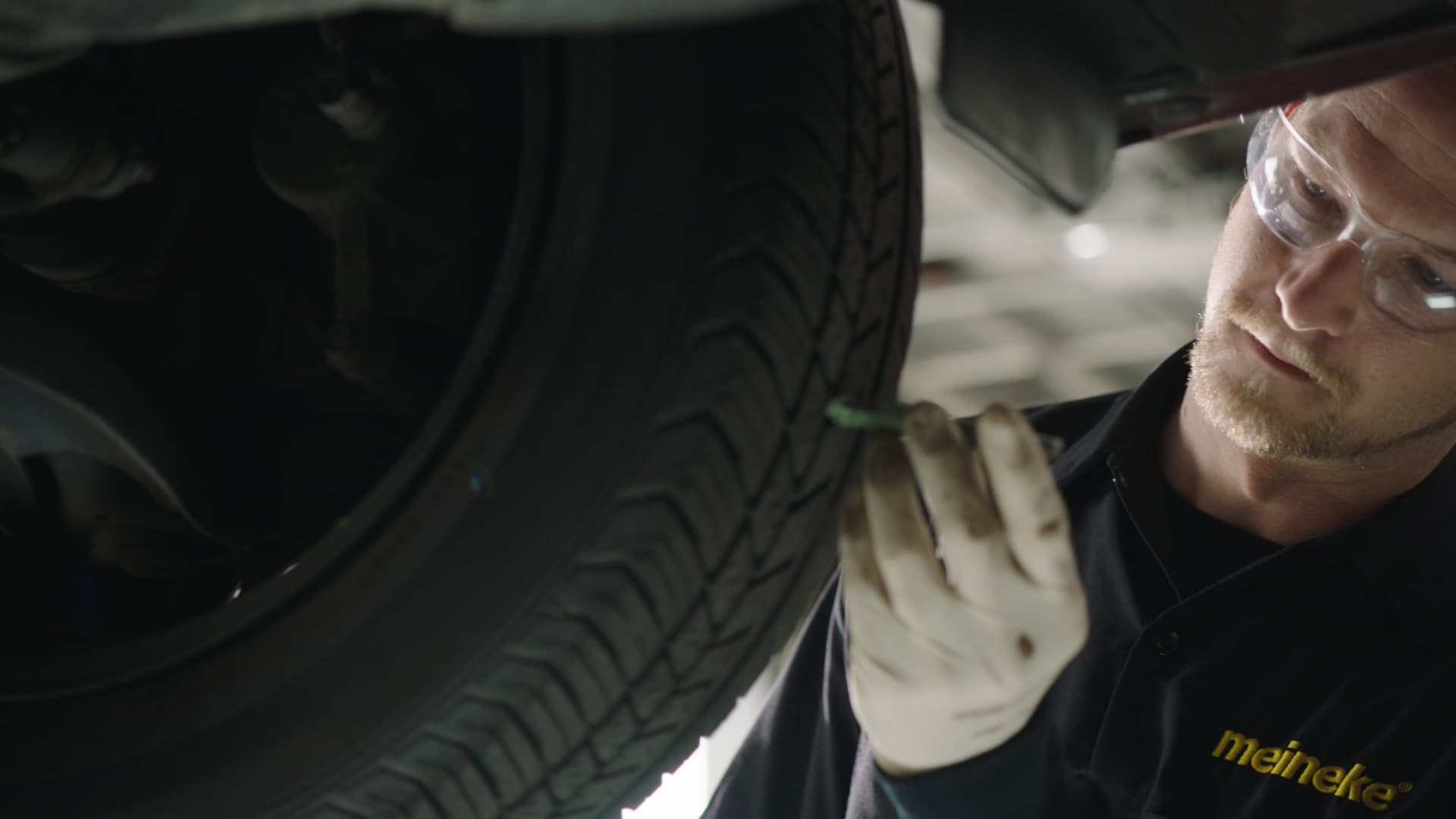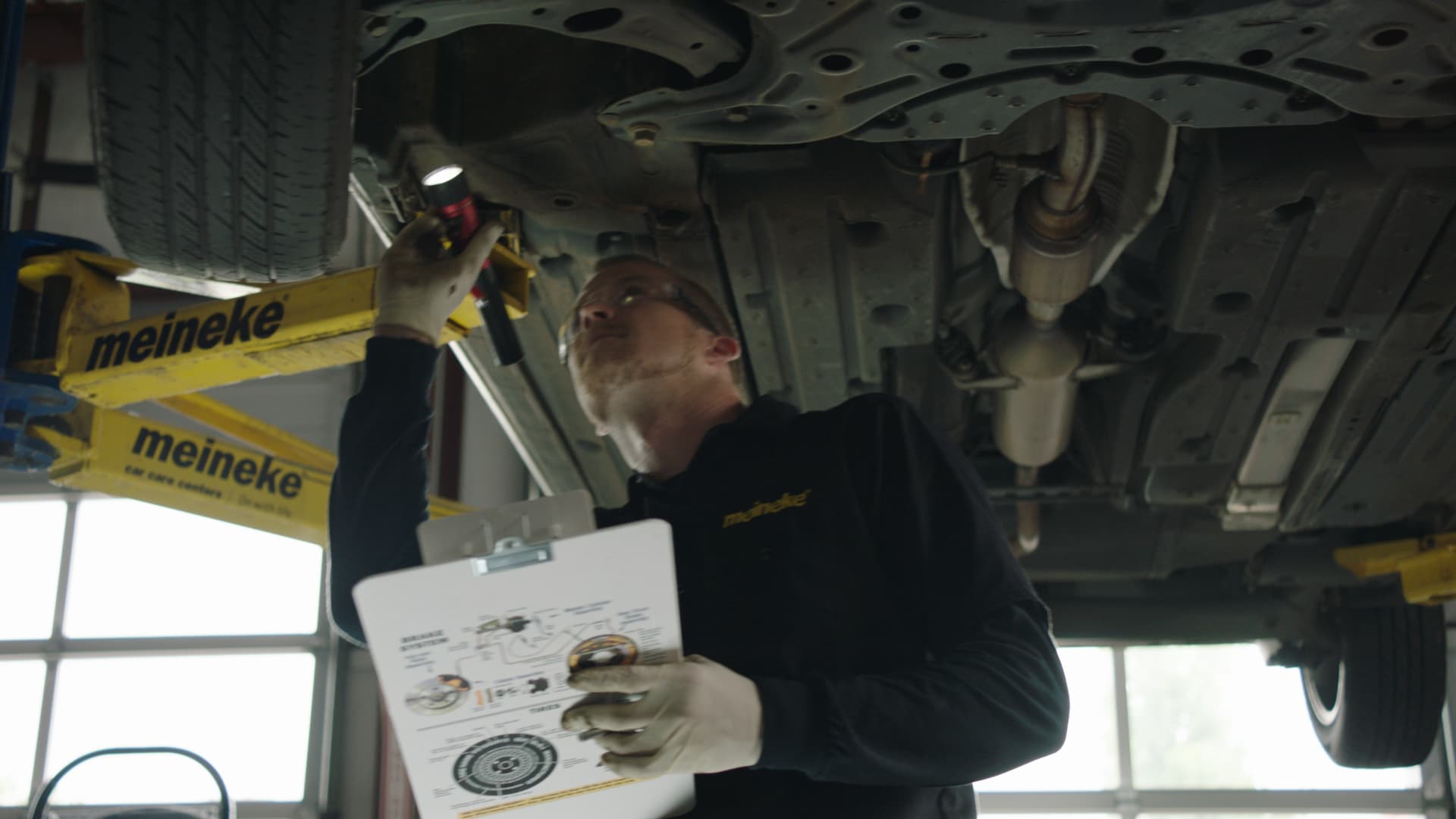
Anti-Lock Brake System Repair
Your ABS brake system is one of the most important safety features in your vehicle. Designed to help you stop safely and maintain control on slippery roads, the anti-lock braking system (ABS) has been standard in most cars for decades. When the system fails or the ABS light turns on, it’s time to visit a certified ABS mechanic. Meineke offers complete anti-lock brake maintenance, including diagnostics, repairs, and ABS module repair. Whether you need ABS brake repair, sensor cleaning, or a full system inspection, we’re your trusted ABS repair shop.

How Does an Anti-Lock Brake System Work?
The anti-lock brake system uses sensors and electronic controls to prevent the wheels from locking up during sudden or hard braking. It continuously monitors the rotational speed of each wheel, applying or releasing brake pressure as needed to ensure all four wheels remain in motion. When the ABS activates, the driver may feel a pulsing in the brake pedal—this is the system working to maintain traction.
By preventing wheel lock-up, ABS allows drivers to steer during emergency stops and shortens stopping distances in most conditions. While ABS can be less effective on snowy surfaces, it remains a vital safety feature for maintaining vehicle control during wet or uneven road conditions. Today’s systems are more advanced than ever, with integrated processors and improved sensor responsiveness.
Why Did My ABS Light Come On?
The ABS warning light on your dashboard indicates that something in your ABS brake system isn’t functioning properly. It doesn’t always mean complete failure, but it does require attention. Common causes of an illuminated ABS light include low brake fluid levels, a damaged or dirty wheel speed sensor, failure of the ABS control module, a blown fuse, or corrosion in the wiring.
When this light appears, your vehicle's braking system may revert to traditional braking, eliminating the safety benefits of ABS. Immediate ABS system repair ensures your vehicle remains safe and road-ready.
Anti-Lock Sensor Cleaning and Replacement
Routine maintenance is key to preserving your antilock braking system. One of the most essential maintenance tasks is cleaning or replacing the wheel speed sensors. These sensors are exposed to road debris and grime, which can impair their ability to detect wheel movement accurately. If left unchecked, dirty or damaged sensors can cause warning lights to illuminate or reduce system performance.
At Meineke, we recommend scheduling anti-lock brake maintenance regularly, alongside other services like oil changes or tire rotations. A certified ABS brake specialist will ensure that your sensors, wiring, and related components are clean, responsive, and functioning as designed.
How Anti-Lock Brakes Work
Today’s antilock brake systems combine computer processors, electronic control units, and hydraulic braking components to deliver advanced safety under pressure. These systems automate what used to be a manual driving skill—threshold braking—and apply it effectively even in moments of panic or low traction.
To function correctly, the system depends on well-maintained fluid levels and tightly sealed hydraulic lines. Over time, seals and gaskets can deteriorate and require replacement. Electrical connections should also be inspected periodically for corrosion or wear, and ABS processors need to be checked to ensure they’re sending accurate signals. Scheduling regular ABS service helps ensure your vehicle is always prepared to perform in emergencies.
Need ABS System Help?
If your ABS light is on, or if you notice longer stopping distances or a lack of traction control under braking, it’s time to schedule a visit to your local Meineke ABS repair shop. Our trained technicians specialize in antilock brake system service, offering accurate ABS diagnostics and efficient solutions, from sensor calibration to ABS module repair. Don’t wait for complete failure—service your ABS system today to stay safe on the road.
ABS Brake Service FAQs
- A:
Yes, you can usually drive with the ABS light on, but it's not recommended. While your standard brakes may still function, the added safety features of the ABS will not. In wet or emergency conditions, this can increase the risk of skidding or losing control. Schedule a service for your antilock brake system as soon as possible.
- A:
There are different ways to check for problems with your ABS technology. Of course, when the ABS dashboard light comes on, that’s an obvious indicator that something is wrong. A slushy or unresponsive pedal is another sign that there’s a brake issue. Finally, be alert for grinding sounds when you apply the brake pedal, which indicates that you need brake servicing ASAP.
- A:
Yes. Like any modern safety system, ABS requires periodic maintenance. This includes checking fluid levels, cleaning or replacing sensors, and inspecting wiring or modules. Routine anti-lock brake maintenance helps prevent failure and ensures your ABS is ready when you need it most.
- A:
Any time you experience your ABS light coming on, or notice any odd noises when you apply the brake pedal, that’s a good indicator that you need a maintenance call. Usually, the ABS light means there is a problem with the wheel sensors, not the brakes themselves; grinding noises or bad response times, meanwhile, usually point to actual brake issues.
- A:
The presence of the ABS dashboard light usually means there is a problem with the sensor, but you can confirm this by looking at the sensor and seeing if there is any dirt or debris build-up; if so, the time to service your car is now.
- A:
If you feel pulsation in your brake pedal during normal braking, or if ABS activates prematurely, it could be due to a faulty sensor, misreading wheel speed. Our technicians can perform a complete ABS diagnostic to identify and correct these false signals.
For trustworthy ABS brake repair, diagnostics, and antilock braking system service, visit Meineke today. Our certified ABS brake specialists will ensure your vehicle stops safely—every time.
- A:
The cost to repair or replace an ABS sensor typically ranges from $150 to $400, depending on your vehicle’s make and model. At Meineke, we offer transparent pricing and quality ABS sensor repair using reliable parts to restore your braking performance.
- A:
If the ABS module fails, your ABS system will shut down and trigger the warning light. You may still be able to brake, but without the anti-lock feature. A failed module can also affect traction control and electronic stability systems. Meineke offers expert ABS module repair and testing to restore full functionality.



